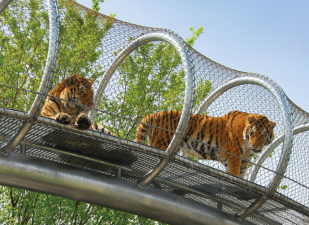Should Zoos Still Exist in 2025?
Zoos have a purpose. Many zoos serve the purpose of animal conservation, research, and education. If properly managed and operated, I believe there's nothing wrong with zoos. Some may argue that zoos restrict the freedom of animals, but it's true that to fulfill the missions of conservation, research, and education, only some animals can be restricted; otherwise, much of the work won't be done well.
Independent research institutes face various constraints when operating in areas other than animal life, while zoos offer a mature environment and programs.

Positive Sides of Zoos
- Educational Value
As important educational venues, zoos provide opportunities for people to get up close and personal with animals, allowing them to learn about their lives, habits, and ecosystems. For children, in particular, zoos serve as a vivid resource for animal knowledge, sparking their curiosity about the natural world and fostering environmental awareness.
- Scientific Research Value
Zoos often collaborate with research institutions, utilizing specialized facilities to conduct research on animal behavior, breeding, and conservation. These findings are crucial for protecting endangered animals and promoting species conservation. Zoos have become a vital base for many animal conservation efforts.

Zoos' Concerns and Challenges
- Animal Welfare Issues
Although zoos provide housing and medical care for their animals, some zoos remain controversial regarding their spatial design and environmental simulation. Animal captivity and human intervention are often questioned, leading to problematic behaviors in some animals due to the loss of freedom, raising concerns about their welfare.
- Uneven Educational Quality
Some zoos simply display animals for the public, lacking in-depth educational content and even becoming overly commercialized. This leads to inconsistent educational quality. Such zoos may mislead visitors and develop erroneous perceptions of animals, which is counterproductive.


